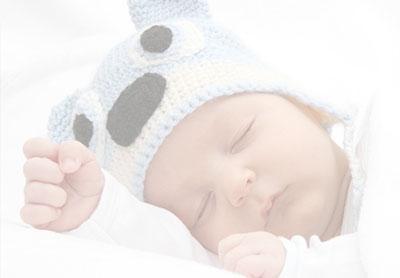Sleep is essential at all stages of life and is particularly important for children: as well as helping them get over their tiredness, it plays a key role in helping their brains to mature and in physical and mental development. It is also important for parents that their baby sleeps: although perfectly natural, the night-time interruptions of the first few months are incredibly tiring and all parents eagerly await the time when their child can sleep through the night. Learn how to better understand your baby's sleep, get our tips on how to have peaceful nights and find out what our sleep experts think.
THE CHARACTERISTICS OF BABIES' SLEEP
Babies' sleep – just like adults' sleep – is divided into cycles, each one subdivided into different phases:
-
Slow wave sleep: this is restorative sleep and helps the brain and body to rest. The body and eyes are immobile, breathing and heart rate are regular.
-
Paradoxical sleep: your baby dreams, his eyes dart around. His body moves, his breathing is irregular and he may even smile a little.
However, although babies' sleep is made up of cycles not dissimilar to those of an adult’s sleep, there are many differences:
- Paradoxical sleep is proportionally longer and the sleep cycles are shorter in babies than in adults: sleep cycles last 50 minutes at birth and then 70 minutes between 2 months and 3 years, as opposed to 90 to 120 minutes from the age of 10 until adulthood.
- And babies sleep much more than adults. On average, a baby sleeps 18 hours a day when they are 1 week old, 15h30 a day when they are 1-month-old and then 14 to 15 hours a day at 1-year-old. However, this can vary considerably from one child to another.
- Babies sleep during the night and have 2 to 3 laps over the first few months, sometimes even more during the first few weeks. By the end of the first year, children usually only have one nap in the early afternoon.
- When they are born, babies do not distinguish between day and night: they need several weeks – and sometimes several months – for their circadian rhythms to develop (biological rhythm of approximately 24 hours, divided into periods of being awake and periods of being asleep)
- Although some babies sleep through the night when they are very young, it is perfectly normal for them to wake up during the night up to the age of 3 months, and their need to feed is real: don't leave your baby to cry and feed him whenever he wants during the night – particularly if you are breastfeeding. You are not running the risk of delaying him getting into the habit of sleeping through the night.
- Babies who sleep well during the night can often have a more interrupted sleep between 9 and 12 months old as separation anxiety sets in. Again, it's better not to leave your baby to cry alone. Cuddle him and soothe his fears.














